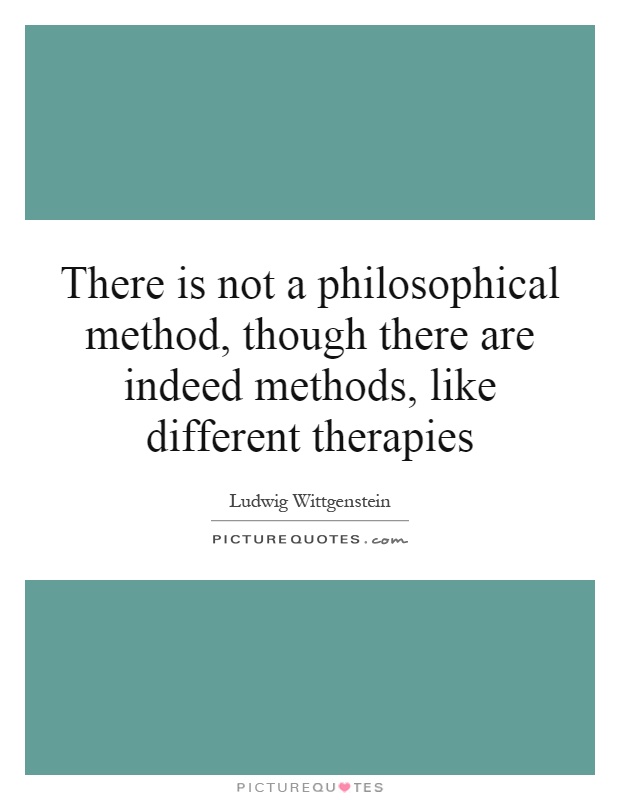There is not a philosophical method, though there are indeed methods, like different therapies

There is not a philosophical method, though there are indeed methods, like different therapies
Ludwig Wittgenstein, one of the most influential philosophers of the 20th century, is known for his unique approach to philosophy that challenges traditional methods and views. In his work, Wittgenstein often emphasized the importance of language and its role in shaping our understanding of the world. He believed that language is not just a tool for communication, but also a fundamental aspect of our thought processes and the way we perceive reality.Wittgenstein famously stated that “there is not a philosophical method, though there are indeed methods, like different therapies.” This statement reflects his rejection of the idea that philosophy can be approached through a single, unified method. Instead, Wittgenstein believed that philosophy should be seen as a collection of different approaches and techniques, each suited to addressing specific questions and problems.
One of the key themes in Wittgenstein's work is the idea that language is inherently tied to our experiences and perceptions. He argued that language is not just a neutral medium for expressing thoughts, but rather shapes the way we think and understand the world around us. This view led Wittgenstein to develop his concept of language games, which are the various ways in which language is used in different contexts and situations.
Wittgenstein's emphasis on language games and the diversity of linguistic practices highlights his belief that there is no one-size-fits-all method for doing philosophy. Instead, he saw philosophy as a dynamic and evolving discipline that requires a flexible and open-minded approach. Wittgenstein's rejection of a fixed philosophical method reflects his commitment to exploring the complexities and nuances of language and its role in shaping our understanding of reality.
Overall, Wittgenstein's statement that “there is not a philosophical method, though there are indeed methods, like different therapies” underscores his innovative and unconventional approach to philosophy. By challenging traditional methods and embracing the diversity of linguistic practices, Wittgenstein paved the way for a new way of thinking about language, thought, and reality.












 Friendship Quotes
Friendship Quotes Love Quotes
Love Quotes Life Quotes
Life Quotes Funny Quotes
Funny Quotes Motivational Quotes
Motivational Quotes Inspirational Quotes
Inspirational Quotes